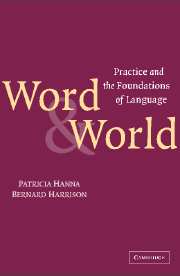14 - Linguistic Competence
Published online by Cambridge University Press: 05 June 2012
Summary
Paradox and understanding
In “A Puzzle About Belief,” Saul Kripke argues that linguistic moves to all appearances normal in reporting the beliefs of others can be shown to generate paradoxical results. The paradox lies in the impossibility of giving a straight answer to this question: Does Pierre, or does he not, believe that London is pretty? We can neither say that Pierre believes London to be pretty nor that he believes it not to be pretty; worse still, we cannot say that he believes neither that it is nor that it is not pretty; and certainly we cannot say that he believes both that it is and that it is not pretty. As straightforward as this outline of the options appears, it is mistaken. There is indeed a straight answer to the question: viz., that Pierre believes that London is not pretty and that Londres est jolie.
In this chapter, we show that the supposed paradox is one in appearance only, and that the appearance rests on a Kripke's covert vacillation between two conceptions of linguistic understanding, a weak, or “minimal” one, and a “strong” one. The weak conception allows Kripke to set up the example that allegedly generates his paradox; but only the strong allows the generation of a philosophically significant paradox. However, a conception of linguistic understanding strong enough to generate the paradox turns out to be strong enough to block it.
- Type
- Chapter
- Information
- Word and WorldPractice and the Foundations of Language, pp. 309 - 323Publisher: Cambridge University PressPrint publication year: 2003



